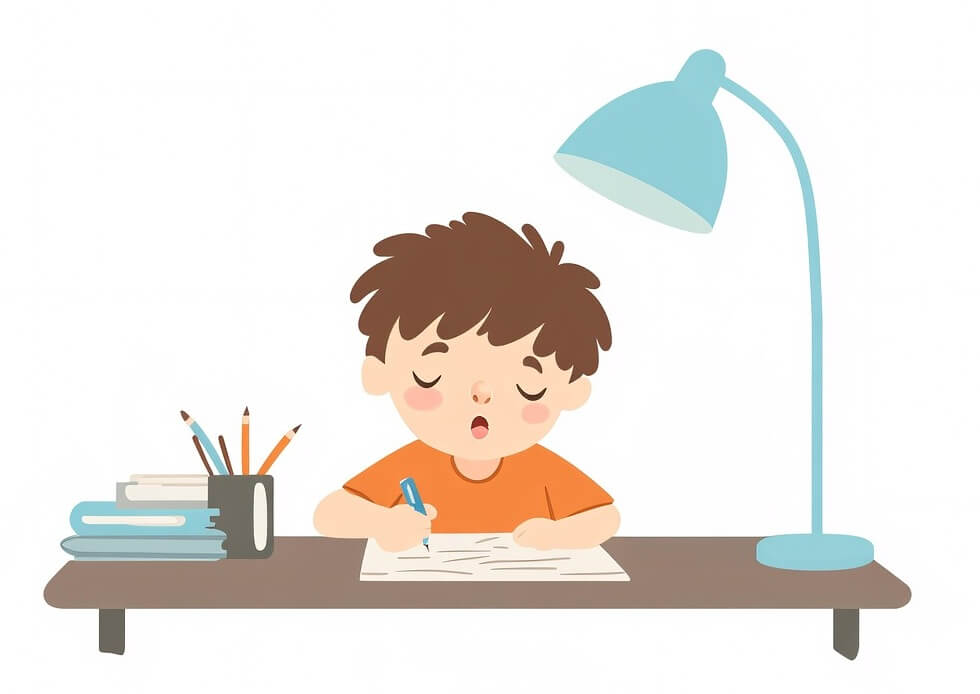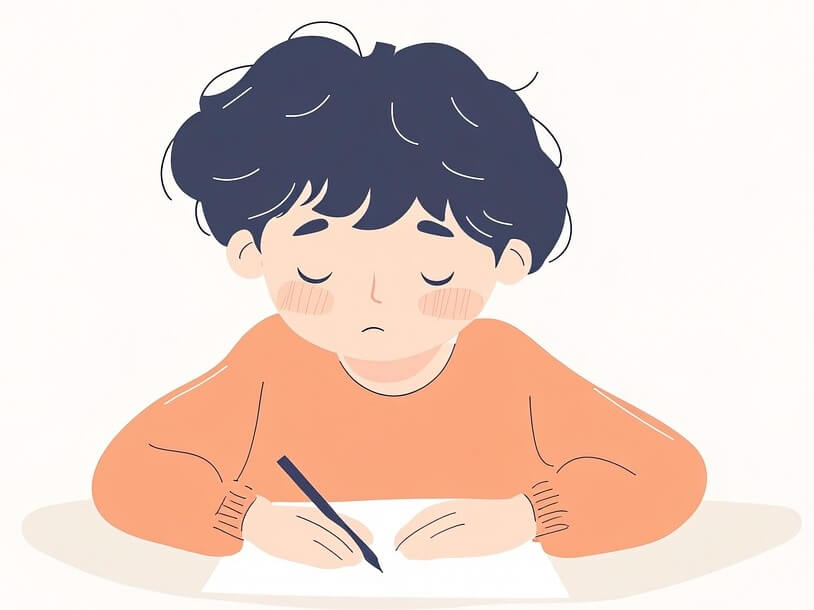
Each one of us experiences stress and anxiety during the month of exams, or even prior to that, especially if we are apprehensive regarding our grades and ranks. It’s natural to go through such feelings, as it prepares the human mind and body to work diligently to achieve their goals and acts as a catalyst to promote our academic validation.
Academic stress is described as the body’s reaction to stresses associated with academics that surpass students’ capacity for adaptation. According to the estimates, between 10 and 30 percent of students struggle with academic stress at some point in their academic lives. In a nationwide survey by the American College Health Association, 33.5% of college students reported academic stress as the primary factor affecting their grades, while 17.5% attributed anxiety and depression to lowered performance (ACHA, 2006). It has been identified as the greatest health barrier for college students’ academic performance by a 2006 poll by American College Health Association. In the poll, which included 97,357 college students, 32% of the respondents claimed that academic stress had led to an incomplete or a dropped course, or a poorer grade.

Oral presentations, academic overload, a lack of time to fulfill responsibilities, and taking exams are the academic stressors that are most frequently mentioned by the students. Excessive workload, time constraints, and exam difficulty are among the top five stressors reported globally by undergraduates (Bedewy & Gabriel, 2015; Misra & Castillo, 2004)
As already mentioned, academic stress could always be considered as an eustress, if managed properly. However, when the students are not able to deal with the stress and when it prolongs, the problem rises and converts into depression.
Tips to deal with academic anxiety and depression include:
1. Make to – do lists :
By aiding in prioritisation and outlining precisely what must be done, to-do lists can make a mountain of commitments that initially seems daunting, much more manageable. Describe the list of things you must perform so that your assignments won’t intimidate you if you clearly see what has to be done.
2. Budget your time :
Your day should be meticulously planned out. When you have a clear understanding of your schedule, you’ll feel more in charge, which will help you approach your duties with confidence and relaxed mind.
3. Create a rewards system :

When things get rough, motivating yourself to finish challenging academic activities can be helpful. Create a system of rewards so you may anticipate completing a series of chores. Give yourself an ice cream, for instance, after reading ten pages of your textbook. Your motivation to keep working will increase because of this small endorphin surge.
4. Ask for help and move on :
Text a friend or send a teacher an email if you find yourself worrying about a situation that seems insurmountable. No matter how important it may seem at the time, don’t spend hours on this issue. You’ll take longer and feel more emotionally spent when you’re getting ready to turn your attention to the other tasks you still have to complete.
5. Breathe :
When under pressure from your studies or feeling overwhelmed, mindfulness is a huge aid. Physically calming oneself will relieve mental stress at the same time. Find some breathing exercises online. Put down your writing materials whenever you start to worry and take a deep breath. Try closing your eyes and exhaling through your mouth while doing this. These types of moments are essential for recharging. Mindfulness-based stress reduction (MBSR) programs have been shown to lower perceived stress by 38% among first-year students (Tandfonline, 2024)
Also Read: How too much or unfair criticism can affect a child’s growth & development
6. Eat healthy :
Even though you might be tempted to grab that pizza slice, eating the appropriate foods will increase your energy and provide you the stamina you need to complete your work. High-fat and high-sugar foods can make you feel lethargic and reluctant to finish your job. For long-lasting energy, put an emphasis on healthy food such as fruits, vegetables, and other high-fiber foods. High dietary quality is inversely related to stress and anxiety levels, showing an average 15% reduction in cortisol among students maintaining balanced diets (Mattioli et al., 2025)
7. Get restful sleep :

Without a good night’s sleep, you won’t be able to concentrate or perform at your best. Students sleeping fewer than 6 hours per night experience a 27% higher risk of academic burnout and emotional exhaustion (Nature, 2024). While one is aware that when there is a ton of schoolwork, sleep may often be the first thing to do, there are several strategies you can do to get the most out of your rest. First, avoid working in bed because doing so will cause you to associate your bed with your work, which will make it more difficult for you to drift off to sleep.
Second, finish the assignments that don’t use a screen. It has been demonstrated that screen time before bed reduces the quality of sleep. If you have trouble falling asleep because of worrying, try squeezing each muscle in your body one at a time and then releasing, beginning with your feet and working your way up. Your body will feel relieved as a result, which will help you fall asleep more quickly.
8. Exercise :
Everyone, according to experts, needs to exercise for at least 30 minutes each day. Exercise not only promotes undisturbed sleep, but it also increases endorphins, which make you feel happier and less worried. Studies show a positive correlation between regular physical activity and increased sleep quality among stressed students (PMC, 2023)
9. Take a weekend getaway :

You need a fun day to recover from a week of school, just like you need a restful night of sleep. Make plans to hang out with friends or family on Friday or Saturday. During these periods, avoid thinking about anything related to job or school by being present. Even when academic stress is at its worst, it can be tempting to work nonstop, but you will work more productively and successfully if you take breaks to recover and interact with others rather than working yourself to exhaustion.
10. Seek help if necessary :
Speak to a teacher, guidance counsellor, parent, or any responsible adult if you discover that academic stress has taken over your life. While some nervousness is natural, no one should worry by themselves, and sustained academic stress can result in mental health issues including anxiety and depression. Seeking academic or psychological support correlates with a 25% faster recovery from anxiety episodes and fewer course withdrawals (Pascoe et al., 2020; Academic Stress Review, 2024)
11. Cultivate hobbies :
Work on your interests, and cultivate hobbies so that there’s “me time”. Working on our hobbies for example – creating art, playing a game, music etc., make us feel relaxed, fulfilled and rested, so we can then study with a fresh mind. It important to keep a balance between studying and relaxation.
Hence, these were few of the ways in which students can manage their academic stress and can protect their mental health. It’s equally important to pay attention to one’s health along with their academics to live a fulfilling life.

